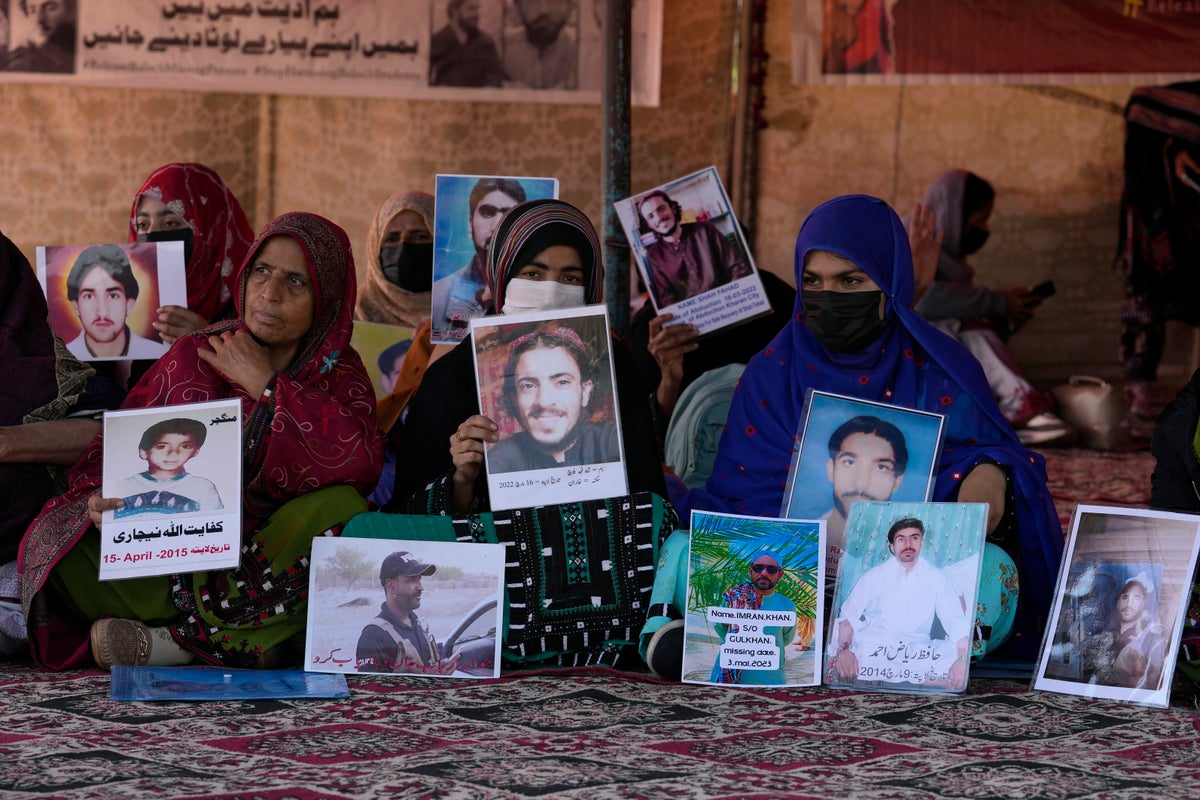
Pakistani police Monday freed 290 Baloch activists who were arrested when they attempted to hold a protest last week in the capital, Islamabad.
Their release came days after protest organizers gave authorities a deadline to release all those detained.
The activists had traveled 1,600 kilometers (about 1,000 miles) on Thursday from Turbat, a town in Baluchistan province, to protest forced disappearances and extrajudicial killings in the militancy-ravaged southwest.
The protesters were mostly women and some had brought along their children, aged 7-12, when security forces used batons and water canons to disperse and arrest them.
They wanted to draw attention to the case of 24-year-old Balaach Mola Bakhsh, who died in November while in police custody in Baluchistan. Authorities said he was killed after militants ambushed the police vehicle transporting him.
Police said Bakhsh was carrying explosives when he was arrested. His family insists he is innocent, demanding justice for him. They also said he had been detained since October. Police said they arrested him in November.
The police use of force against the protesters sparked anger among Baluchistan residents and drew nationwide condemnation from top human rights activists.
Protest organizers said that as the dozens of vehicles carrying the activists reached the outskirts of Islamabad before dawn Thursday, police used water canons against them and started beating them up to prevent them from reaching the heart of the capital.
At the weekend, organizers and protesters held a sit-in outside the Islamabad Press Club to denounce the violence. “Four female police officers with batons hit me,” Mahrang Baloch, one of the organizers, told reporters as she and dozens of others held portraits of those detained by the police, demanding their release.
Senator Mushtaq Ahmed and top human rights activist Farhat Ullah Baba attended the sit-in and condemned the use of force by authorities.
"These peaceful demonstrators are victims of state terrorism,” Ahmed said, adding that every citizen had the right to peacefully protest in Pakistan.
Baluchistan province — which borders Afghanistan and Iran and is rich in oil, gas and minerals — has been the scene of low-level insurgency by Baluch nationalists for more than two decades. Baluch nationalists initially wanted a share of provincial resources, but later initiated an insurgency for independence.
According to human rights activists, those who demand a greater share of the province's natural resources often go missing after being detained by security forces.







